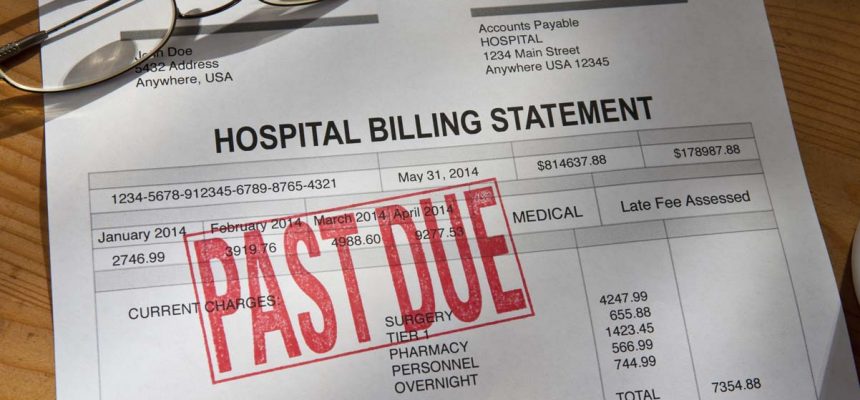Medical Debt Impacts Consumers’ Overall Health
By Consumers for Quality Care, on October 5, 2022

Crushing medical debt is leading to increased rates of eviction, food scarcity, and long-term negative health outcomes for many consumers, regardless of insurance or income, according to Axios.
An investigation by Kaiser Health News and NPR earlier this year determined more than 100 million Americans have medical debt. Even consumers with private insurance find that their plan does not cover enough costs related to treatment and care.
“Private insurance is a defective product. You pay for it and then when you get sick, there’s co-payments, there’s deductibles, there’s out-of-network fees, there’s things that aren’t covered at all,” said Steffie Woolhandler, a physician and public health professor at Hunter College.
In 2018, the average amount of medical debt was $21,867, according to a survey from the Census Bureau. For uninsured consumers, this figure grew to $38,000 and for those in poor health, the average amount was $43,000. The survey also found consumers with medical debt are 2-3 times more likely to be incapable of affording other costs of living such as rent and food. As a result, consumers oftentimes must resort to working part-time jobs or taking out loans to pay off their medical debt, resulting in higher levels of stress which could contribute to long-term negative health effects.
To lessen the burden of medical debt, the Biden administration previously directed the Department of Health and Human Services (HHS) to tackle these issues. HHS has since evaluated billing and debt collection practices. In addition, the Consumer Financial Protection Bureau (CFPB) has increased oversight in credit reporting companies that violate consumers’ rights when determining credit scores.
While the actions from the Biden administration are welcomed, consumer advocates say they do not go far enough. “Shining the light on hospitals to solve this deeper issue of household financial vulnerability is like patching the holes on a roof. The root causes here are much deeper than that,” said Wes Yin, an economics professor at UCLA.
All consumers deserve access to affordable, high-quality health insurance and protection from crushing medical debt. CQC urges the administration and lawmakers to continue to tackle the medical debt crisis, which impacts the physical, emotional, and financial well-being of millions of Americans.




